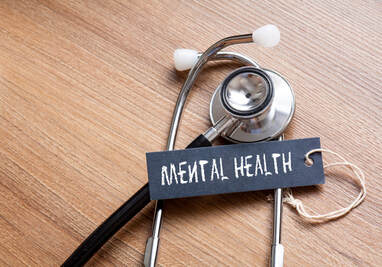Mental Health Hygiene: The Big 4Written by: Dr. Kat Harris, PhD, LCPMental Health Hygiene is much like physical hygiene, consistently practiced activities that help ensure both short-term and long-term health and contribute to our quality of life. The following are 4 categories I believe are important components of good mental health hygiene and ones I teach to my clients regularly:
The Physical 3: Mental health hygiene includes physical health hygiene (and vice versa). Mental health benefits greatly from some physical health basics. These include getting restful sleep, getting physical exercise, and eating nutritious food. I often refer to these as foundational to mental health hygiene. Similar to Maslow’s Hierarchy of Needs, it will be more challenging to achieve comprehensive mental health hygiene without these foundational physical health basics. The Behavioral Activation 3: Therapists often include behavioral activation as a highly effective tool in combating depression and anxiety. Behavioral activation involves encouraging “activation, “interaction with one’s environment in a way that offers opportunities for positive feedback from the environment and increases in self-worth and trusting oneself. Typical components of behavioral activation include engaging in daily activities that give an individual a sense of meaning, pleasure, and mastery. Read more about Behavioral Activation here: https://www.oakheartcenter.com/oakheart-blog/behavioral-activation-for-depression-what-why-and-how The Social 3: Investing in relationships and spending time with people whom we care about (and who care about us), sharing kindness with others, and “working out” with a “personal mental health trainer” (aka a therapist/counselor). Most of us desire relationships with other people, and getting regular face-time with others can do wonders for our mood. Of note, interactions with others who are capable of making us feel worthy and loved and seen is important. Helping others and showing kindness can also be incredibly rewarding and help fulfill values and/or our sense of meaning. And working with a therapist/counselor can be a powerful source of support and guidance. This might be particularly true for those struggling with significant mental health concerns such as trauma, mood disorders, eating disorders, anxiety disorders, etc. The Mindful 3: Practicing staying present and externally focused, practicing non-judgmentalness (especially towards the self which includes self-compassion), and practicing gratitude. Many mental health disorders and symptoms result in either living in the past (rumination, shame spirals, checking back in time, etc.), living in the future (worrying about catastrophic possibilities, what if’s, over-planning/preparing, etc.) or living focused inward (focusing on physical symptoms, being consumed by thoughts or trying to figure something out, engaging in mental compulsions, etc.). Learning to stay present-focused and externally-focused are powerful tools. Children have a knack for this skill, and as we age, we lose this powerful natural gift…to live every moment for exactly what it is. We also have a natural proclivity towards judgment, of ourselves and others. Learning to be aware of the assumptions we are making and to approach the world and ourselves with a noticing versus judging mentality can be an important mental health hygiene tool. As is practicing gratitude. Comments are closed.
|
OakHeart
|
- Home
- Counseling
-
Specialties
- Depression
- Bipolar Disorder
- Anxiety Disorders >
- Obsessive-Compulsive Disorder (OCD)
- Eating Disorders
- Grief and Bereavement
- ADHD
- Maternal Mental Health
- Infertility, Miscarriage, and Neonatal Loss
- Domestic Violence and Sexual Assault
- Posttraumatic Stress Disorder (PTSD) >
- Trauma
- Non-Suicidal Self-Injury (NSSI)
- Substance Use Disorders (SUD)
- Anger Management
- Insomnia
- Divorce Recovery
- Relationship Concerns and Couples Counseling
- Self-Esteem
- Therapy for Therapists
- LGBTQA+ Support
- Faith-Based Counseling
-
Providers
- Erin Mitchell
- Pamela Heilman
- Katie Sheehan
- Hillary Gorin
- Lee Ann Heathcoat
- Adam Ginsburg
- Megan Noren
- Sarah Williams
- Christina Bieche
- Bridgette Koukos
- Laura Lahay
- Kate Nash
- Anna Perkowski
- Alma Lazaro
- Leah Arthur
- Marissa Vogrin
- Erin Blair
- Amy Jakobsen
- Lizzy Lowe
- Tony Fasano
- Gerry Lawm
- Vanessa Osmer
- Kat Harris
- Locations
- Contact
- Treatments
- Employment
- FAQ and Notices
- OakHeart Blog
- Administrative and Leadership Team
- Mental Health Resources
- Divorce Mediation
- Professional Consultation
|
|




